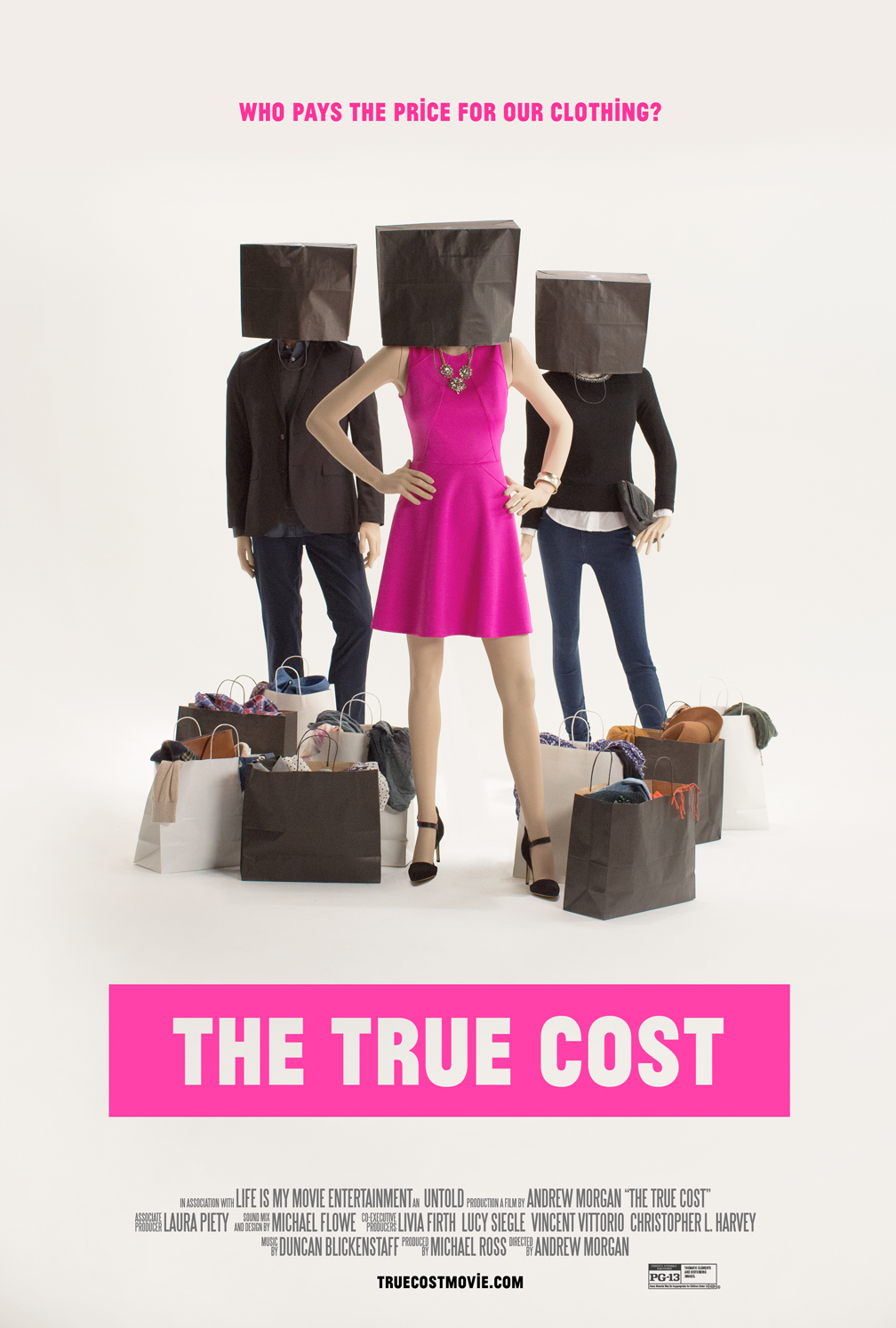That fashion is the second most polluting industry on the planet, second only to the oil industry, is just one of the sobering truths you will learn in Andrew Morgan’s film The True Cost, a documentary about the global impact of today’s fashion industry.
Cheaply made clothing, available for a low price, seems disposable and forgettable, part of a “fast fashion” movement that brings in new looks every week. Clothing consumption has gone up 400% in the past two decades. As The True Cost illustrates, this comes at a price.
One in six people in the world are employed in the fashion industry. Many of them work in unsafe conditions for employers keen to keep prices low, feeling they have no choice. These conditions lead to tragedies such as that of the Rana Plaza in Bangladesh where over 1000 workers died making clothes for the West. Businesses argue that sweatshops offer a better economic option than what impoverished areas would have otherwise. But this self-satisfied argument neglects human decency and compassion, permitting conditions that would never be tolerated in the West while profits mount up for those at the top.
Textiles are resource-intense to produce and come at a high environmental cost: most non-organic cotton, for example, is now genetically modified to be able to withstand heavy pesticide use, and pesticides are applied systematically by planes to the entire crop instead of to spots where infestations have arisen. In Texas, the largest cotton growing area in the world, where most of the cotton is GMO and heavily treated with pesticides, brain tumors are increasingly common. In India, Monsanto controls 95% of the cotton seeds. Its seeds are expensive and require increasing pesticide use, yet crops still fail. This has led to an epidemic of farmer suicides in India, where the farmer walks out into the field and drinks the pesticide he has spent all his money to buy. Dr. Vandana Shiva comments that the same companies hold the patent for the seeds, make the pesticides, and make the medicines to treat cancer. “For them it’s a win-win-win-win-win. But for Nature and for us, it’s a lose-lose-lose-lose-lose.”
The increased pesticide use is also linked to increases in birth defects, severe developmental delays and cancers. The film shows heartrending footage of children with severe handicaps in areas with high pesticide use, as well as farmers applying these pesticides with no protection for themselves.
Dyes and chemicals needed to treat and color fabrics and leathers are being dumped directly into waterways, including India’s holy river Ganges. People bathe and drink directly from these waters, contaminated with high levels of chromium.
And finally, the disposability of today’s clothing means landfills are full of offgassing synthetic fabrics, and third world economies are being depressed by influxes of free or cheap cast-off clothes that put local clothing producers out of business.
Psychologist Tim Kasser discusses his research showing that as people place increasing priority on materialistic goals (such as buying more and more clothing), their happiness and well-being actually decreases. This speaks to the problem of disconnect we are facing as a society, as well as the solution: reconnect with what is important.
All this and more is covered in The True Cost, which has been likened to Super Size Me in terms of its potential effect on the industry it covers. It would be difficult to come away from this movie without giving serious thought to your clothing choices and how they are connected with lives around the world. Highly recommended.
by Parvati Magazine staff











